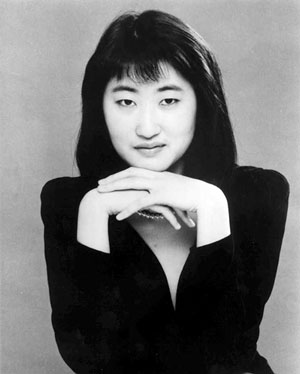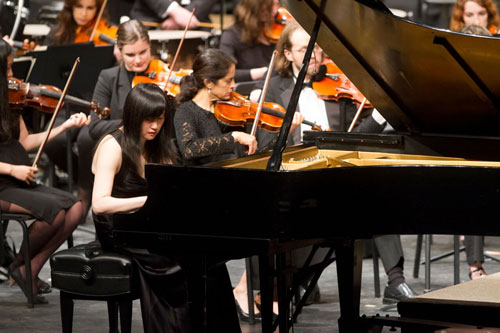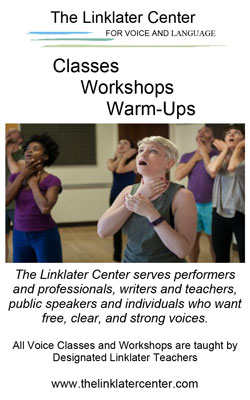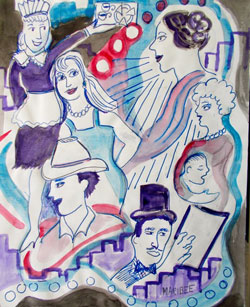Yi-Min Cai
 Yi-Min Cai began playing the piano at age five. By the age of ten, she was recognized as a child prodigy, and was chosen to perform in a live telecast from the Great Hall in Beijing. She studied at the Central Conservatory of Music in Beijing. Dr. Cai made numerous radio and television appearances in China and won the first prize in the Chinese Piano Music Performance Competition and the Piano Etudes Performance Competition at the Central Conservatory of Music in Beijing. She was a scholarship student of Edith Kraft at the New School of Music in Philadelphia, and a student of Solomon Mikowsky and Donn-Alexandre Feder at the Manhattan School of Music in New York. She received the Elva van Gelder Memorial Scholarship. In 1987, she won the first prize in the Abraham and Phyllis Katz Young Musician Competition. Dr. Cai has performed in La Laguna University Music Festival in Tenerife, the International Piano Festival in Spain, Weill Recital Hall and Merkin Hall in New York, and Mozart on the Square Festival in Philadelphia. She was on the faculties of the Manhattan School of Music Preparatory Division and the Conser- vatory of Concordia College in New York. She is also frequently invited to give lectures, master classes, and workshops at many colleges and universities in the United States, Taiwan, and China, including visits at the prestigious Xiamen University and China Conservatory in Beijing where she was named a permanent Guest Professor for the conservatory. Currently, Dr. Cai is Professor of Piano at the University of North Alabama, where she was the 2007-2008 recipient of the Academic Affairs Award for Outstanding Teaching.
Yi-Min Cai began playing the piano at age five. By the age of ten, she was recognized as a child prodigy, and was chosen to perform in a live telecast from the Great Hall in Beijing. She studied at the Central Conservatory of Music in Beijing. Dr. Cai made numerous radio and television appearances in China and won the first prize in the Chinese Piano Music Performance Competition and the Piano Etudes Performance Competition at the Central Conservatory of Music in Beijing. She was a scholarship student of Edith Kraft at the New School of Music in Philadelphia, and a student of Solomon Mikowsky and Donn-Alexandre Feder at the Manhattan School of Music in New York. She received the Elva van Gelder Memorial Scholarship. In 1987, she won the first prize in the Abraham and Phyllis Katz Young Musician Competition. Dr. Cai has performed in La Laguna University Music Festival in Tenerife, the International Piano Festival in Spain, Weill Recital Hall and Merkin Hall in New York, and Mozart on the Square Festival in Philadelphia. She was on the faculties of the Manhattan School of Music Preparatory Division and the Conser- vatory of Concordia College in New York. She is also frequently invited to give lectures, master classes, and workshops at many colleges and universities in the United States, Taiwan, and China, including visits at the prestigious Xiamen University and China Conservatory in Beijing where she was named a permanent Guest Professor for the conservatory. Currently, Dr. Cai is Professor of Piano at the University of North Alabama, where she was the 2007-2008 recipient of the Academic Affairs Award for Outstanding Teaching.
What gave you the greatest joy and satisfaction performing Rachmaninoff’s “Piano Concerto no. 2” with the Shoals Symphony in the Classical Masterworks concert at the University of North Alabama?
It was very satisfying, and a lot of work. The Shoals Symphony was basically a community orchestra before I came here and I have seen them grow into a major performing symphony ensemble in the area. The conductor is a faculty member and asked me if I would play with them. It would give them a good opportunity to play a major piece with a piano soloist. It’s a joy to work with the students. Rachmaninoff’s “Piano Concerto no. 2” is such a popular and familiar piece and that makes it a little harder since people know how it’s supposed to sound. It has a huge range emotionally in the music. It pretty much covers all the technical challenges you can name: the chords, speed, a huge range and all of that makes it a very challenging piece to play in a way that people feel the freshness in it, and hopefully get excited from listening from it being played.

Yi-Min Cai, soloist, playing with Shoals Synphony at University of North Alabama,
Florence, Alabama
What was your process to prepare to play Rachmaninoff’s “Piano Concerto no. 2?”
Of course you learn the notes first. Beyond that, you’re trying to capture the character of the music. Obviously it’s a piece you have to spend a lot of time on technical aspect everyday. It’s like training all the muscles like an athlete has to go through. It’s important to bring out the character and emotions of the piece.
So there’s a great deal of interpretation involved?
For me, I always have to have a certain understanding of the piece. What the composer wrote on the page is there, and l have to have my own interpretation. A good musician is always trying to be faithful to the composer’s original intentions; that’s our first goal. It’s also fundamentally important to inject your own interpretation, otherwise the notes are dead. If it says Allegro or Andante in the music, it means one thing, but it’s up to you how you’ll bring it to life. That’s part of the process. You envision it and hopefully what you’ve envisioned is actually projected to the audience. In a way, much like the way an actor interprets a character, we act with sound.
You began playing the piano at age of five, and at ten years old, you performed in a live telecast from the Great Hall in Beijing. What was your life like between those years?
It was an interesting part of my life. My father was a music lover, and he especially liked classical music. My father is a physician in Shanghai and he started me; he was my first teacher. I was born during the Cultural Revolution in China when you were not supposed to learn anything from western culture. At that time the literature and music from the West were forbidden. They were burning books and pianos, but somehow my father was able to get a used upright German piano. It could have been dangerous for him. He put a velvet cloth between the string and the hammer so it would make the sound very soft so our neighbor wouldn’t report us.
When Mao died, I was about ten years old. I applied to Central Conservatory of Music in Beijing and I was accepted. Over 17,000 applied, but only two hundred were chosen. When Mao died, Hua Guofeng took over and then Deng Xiaoping. That ushered China in a whole new era. It had first begun when President Nixon went to China in 1972 to meet Mao. They had thought of me as a child prodigy, so they sent me to Beijing to play in The Great Hall. The concert was broadcast live for the New Year across the country to over a billion people. That was when I met Deng Xiaoping. My journey in music began then.

Yi-Min Cai, soloist, playing with Shoals Synphony
at University of North Alabama, Florence, Alabama
What did it mean to you to study at the Central Conservatory of Music in Beijing?
It has turned into the most prestigious major conservatory in China, attracting the best talent, in a way equivalent to what Juilliard is in this country. The teachers are extremely dedicated, very devoted, treating their students like you are their own children; they want the best for you. When I first came to America I was shocked that I had one lesson a week; that it was a norm in the West. It is very different in China. The Central Conservatory eventually brought in world class musicians from the West. I think it’s extremely important for young students to be exposed to the greatness in art; I believe it can make a huge difference. When young children hear Mozart or Beethoven very early on, it has a huge impact on the rest of their lives, especially when they’re learning. By listening to great performances, it opens you up to what the music can be.
When I was in the Conservatory in China, sometimes we didn’t have heat in the winter when we would play in the practice rooms, so you would hold a hot-water bottle in your hands before you played. It has certainly changed — there are always challenges. But I think it’s the motivation — how much you really want it; the desire to learn that makes all things possible.
How important is having talent?
Talent allows you to have the ability to play at a very high level but I think the desire to be better and to learn more is very important. I have seen people who have talent but it can be wasted in the end. So much of it has to do with motivation. It can also be the kind of teacher you have. In the Chinese culture the parents are a part of it. They are a part of the student’s education. It’s very important to have the desire to really be the best you can be.
How strongly did your parents feel about your becoming a pianist?
For my parents the whole idea was for me to have some fun — to have a musical education. They didn’t push me. My father was very much in to supporting me. Both my parents encouraged me. All teachers teach differently. Some teachers will give you a lot of freedom, others can be very controlling. My teachers in China gave more guidance when I was young. When you are a teenager you need guidance. My two teachers in New York were more on letting me develop my own personality, my own way of playing.
What led you to want to teach?
I started teaching when I was in college to make some money on the side. I think teaching can make you more aware of what you are doing yourself. You realize you can do more. If you can explain to someone how to practice, or what works and what doesn’t, it can help you in your own playing. I have learned different people react differently in how they learn. What may work for one person, may not for another person. You try and figure out what you're doing and it forces you to see things more clearly. Teaching is more challenging than I initially thought. I think great teaching is an art form. It’s art at a high level. I used to teach beginners, and believe it or not, teaching a beginner is not easy. With a beginner, you know that everything comes after the foundation.
How do you go about teaching how to approach playing music?
In music, for me it is all about to go behind the notes. If you look at the printed notes, they are just notes, but behind them is what the composer wanted them to be and then it is you do them. A great composer gives you a lot of room to imagine. He may put “Dolce” which means “sweet,” but that can mean a lot of things. “Forte” which is loud can mean “strong,” “majestic,” all sorts of thing, but the composer doesn’t tell you so it’s up to the performer to interpret it.
A performer approaches the music with a certain respect, with belief and intelligence to see behind the notes. That music is in the silence between the notes. That is not the note but what is happening between them. It is like your thoughts which never rest. In music, even with a rest, you don’t stop your thoughts. The thought keeps going so that through my interpretation you will hear and see what is invisible in the music. Of course what touches people the most is the invisible. That’s the hardest thing to teach, to try and teach the student how to feel, and sometimes they do.
Currently, you’re the Professor of Piano at the University of North Alabama. What are your greatest goals that you bring to your students?
There are students at all different kinds of levels, and depending upon their level, basically one big goal is to teach them in a way that one day they don’t need me. They may be with me for four years, maybe five. The world can be a harsh place so I want them to learn to operate independently. I’d love for them to continue to learn. It’s always a must for musicians. I want their thinking process to operate in such a way that they’re not dependent upon anyone.
How impactful is a good conductor on what you do?
A good conductor can make a huge difference. The orchestra will sound differently. All the musicians listen to the conductor; they watch him. He is a leader, and a sensitive one will make a big difference especially in my situation as the soloist. The conductor is supporting me in the timing during the performance. He might take more time at this moment, I might make a pause, and all this is happening simultaneously as I’m playing, and a good conductor is really listening. I have to listen to the orchestra. Listening is a huge part of it especially under that kind of pressure on stage.
How would you describe what music means for your life?
It’s a tremendous part of my life; I can’t imagine living without it. When I was growing up it was everything to me. As I’ve gotten older enough, I can step back and realize life has other things. Certainly it remains a huge part of my life. Music can transform a person — it can teach you about life, about yourself. It can help you find the truth in yourself. We’re always looking for truth in music. Music feels like a spiritual teacher for me. I learn a lot when I play. You can’t imagine civilization without it. Artists are the soul of society. Look at the writers, the literary giants and what they bring us. There also creative artists in medicine, in so many parts of life. With the arts, the artists are the soul of civilization in modern times.

























